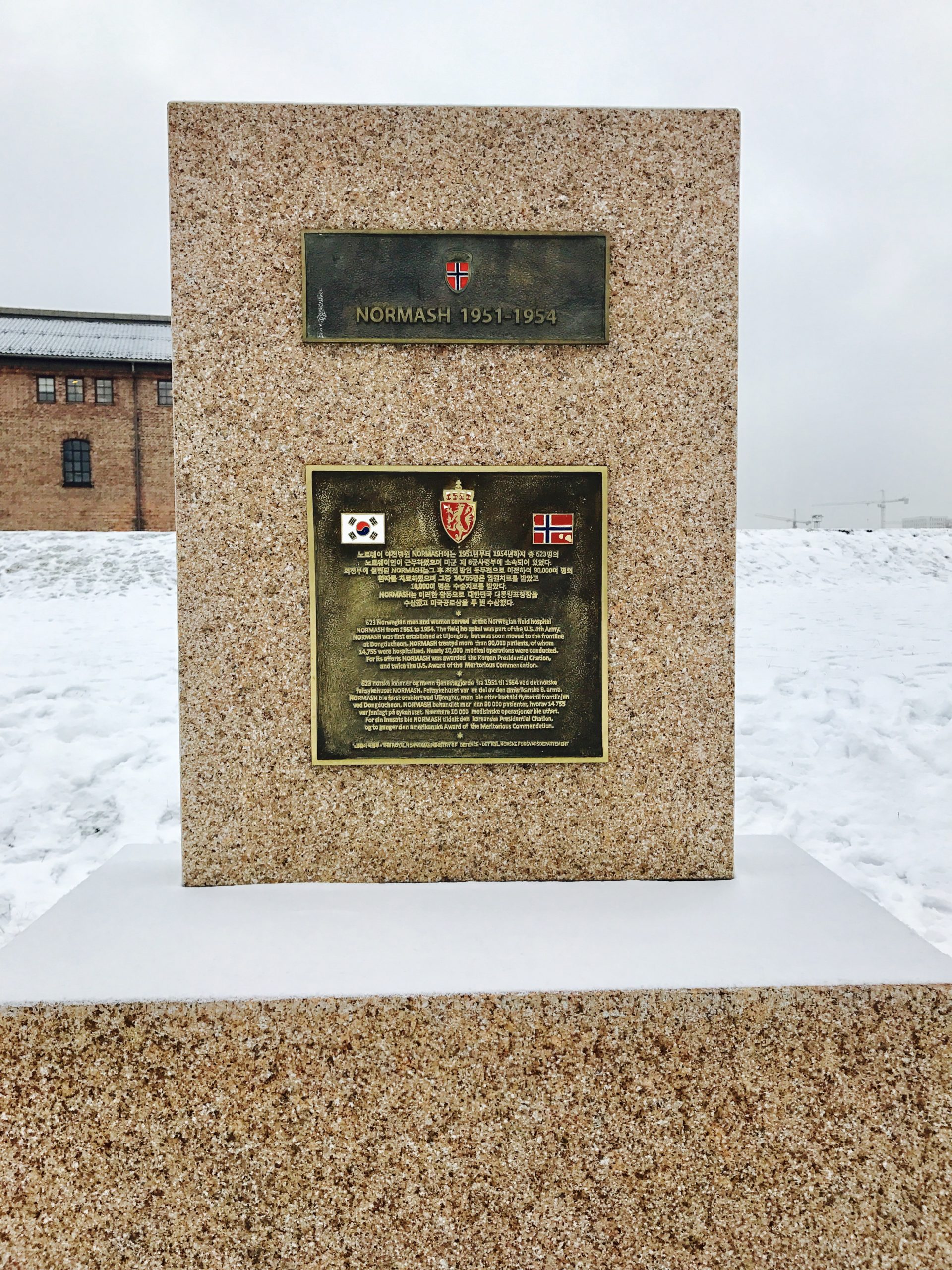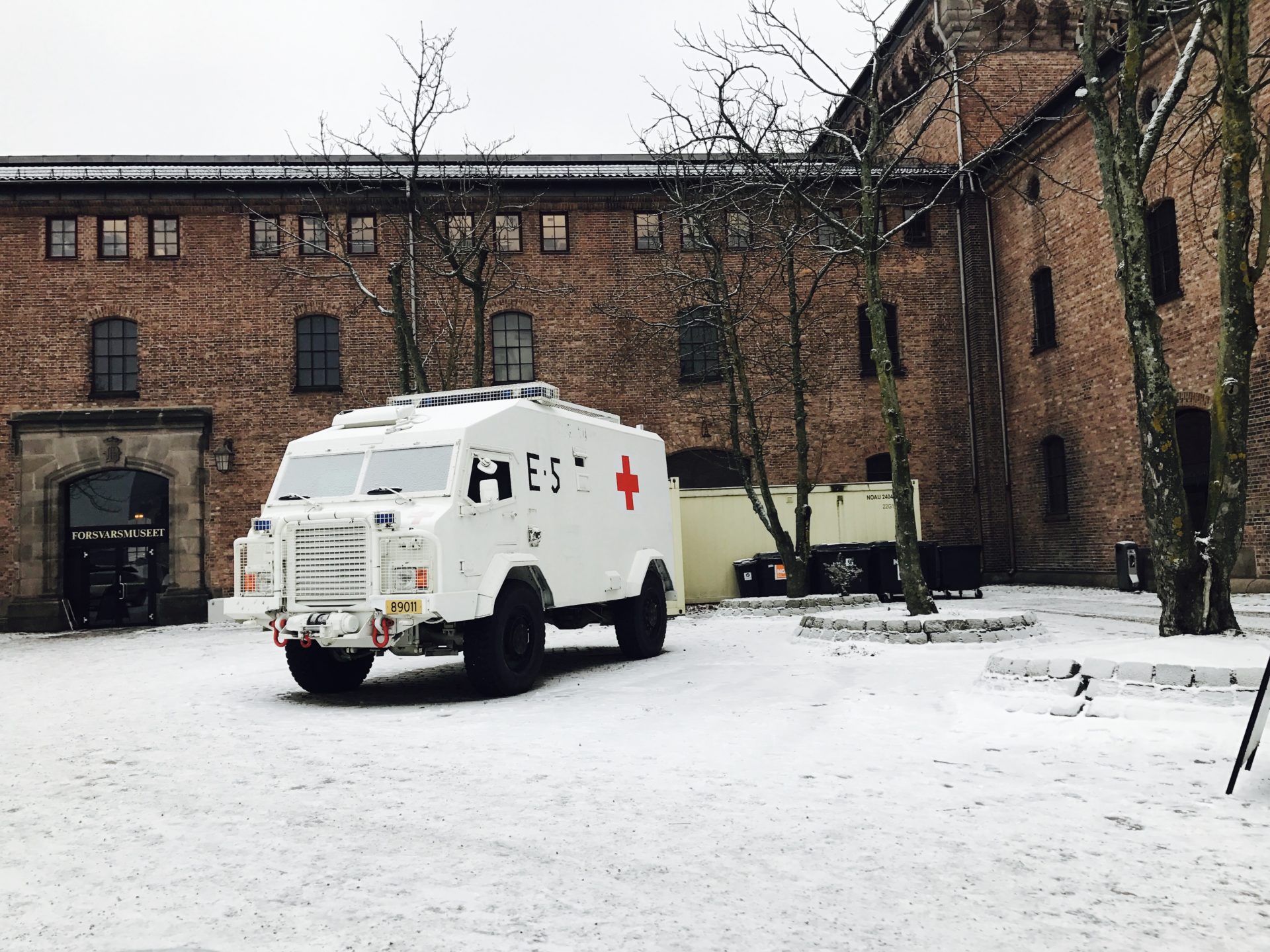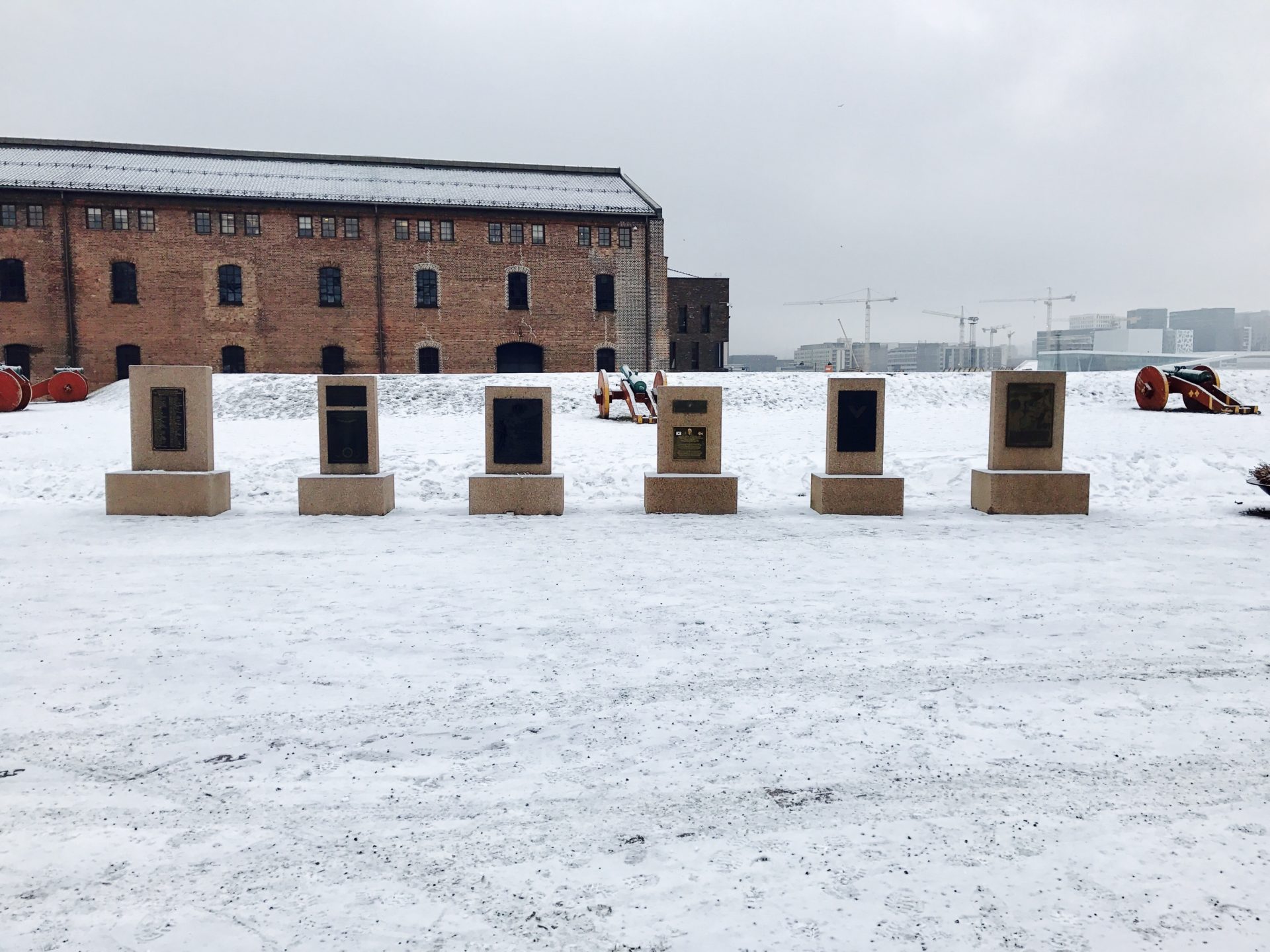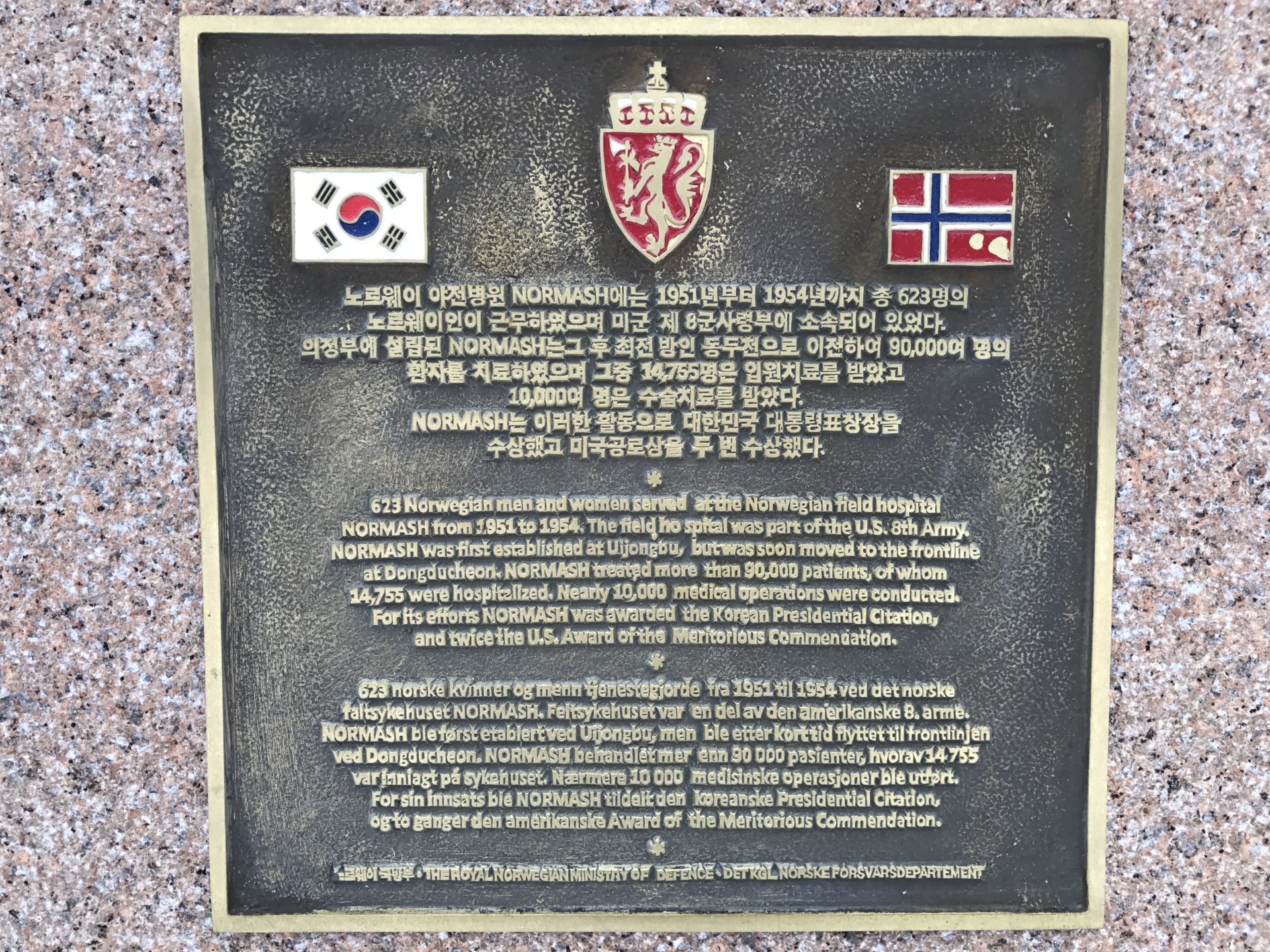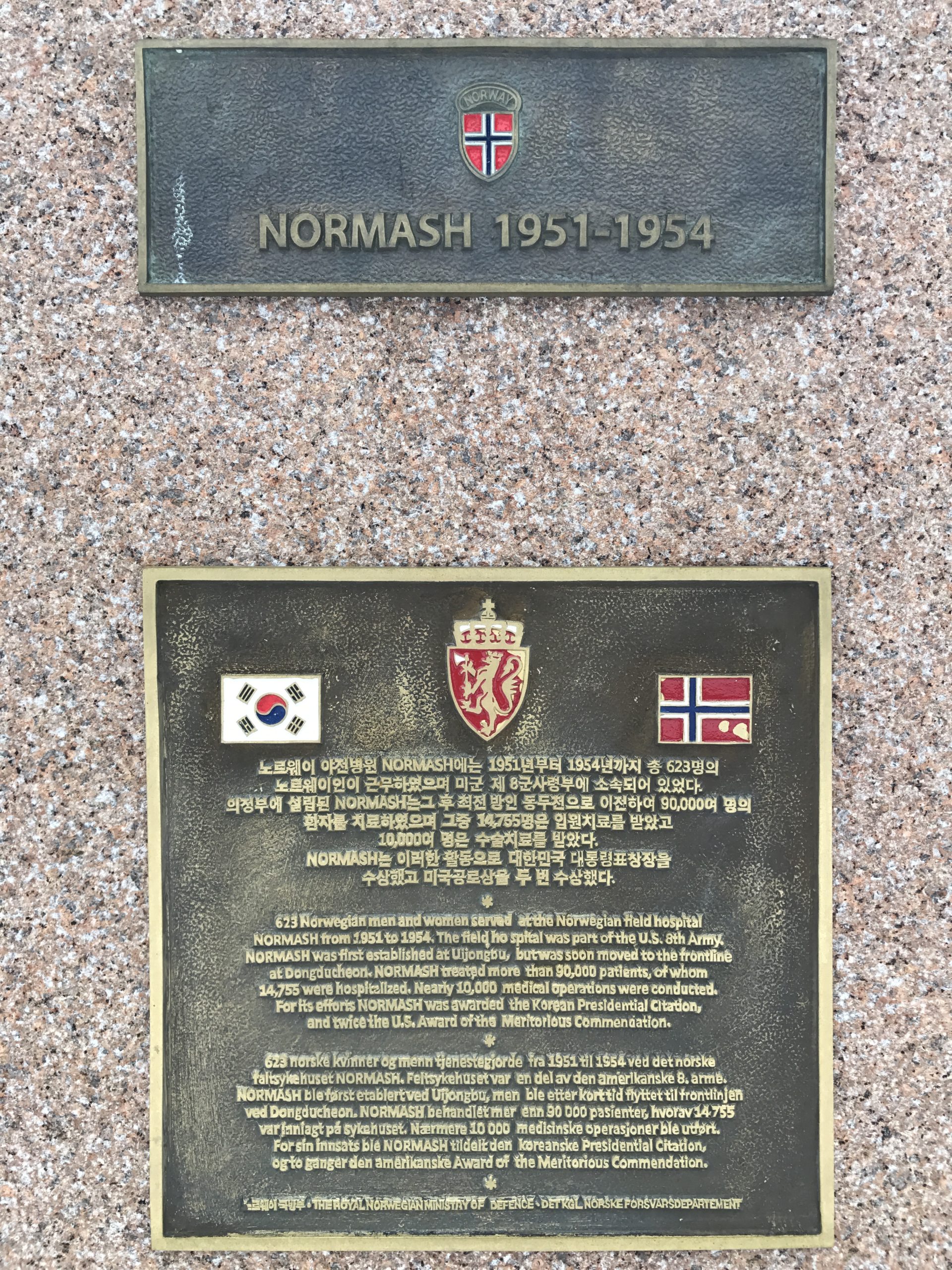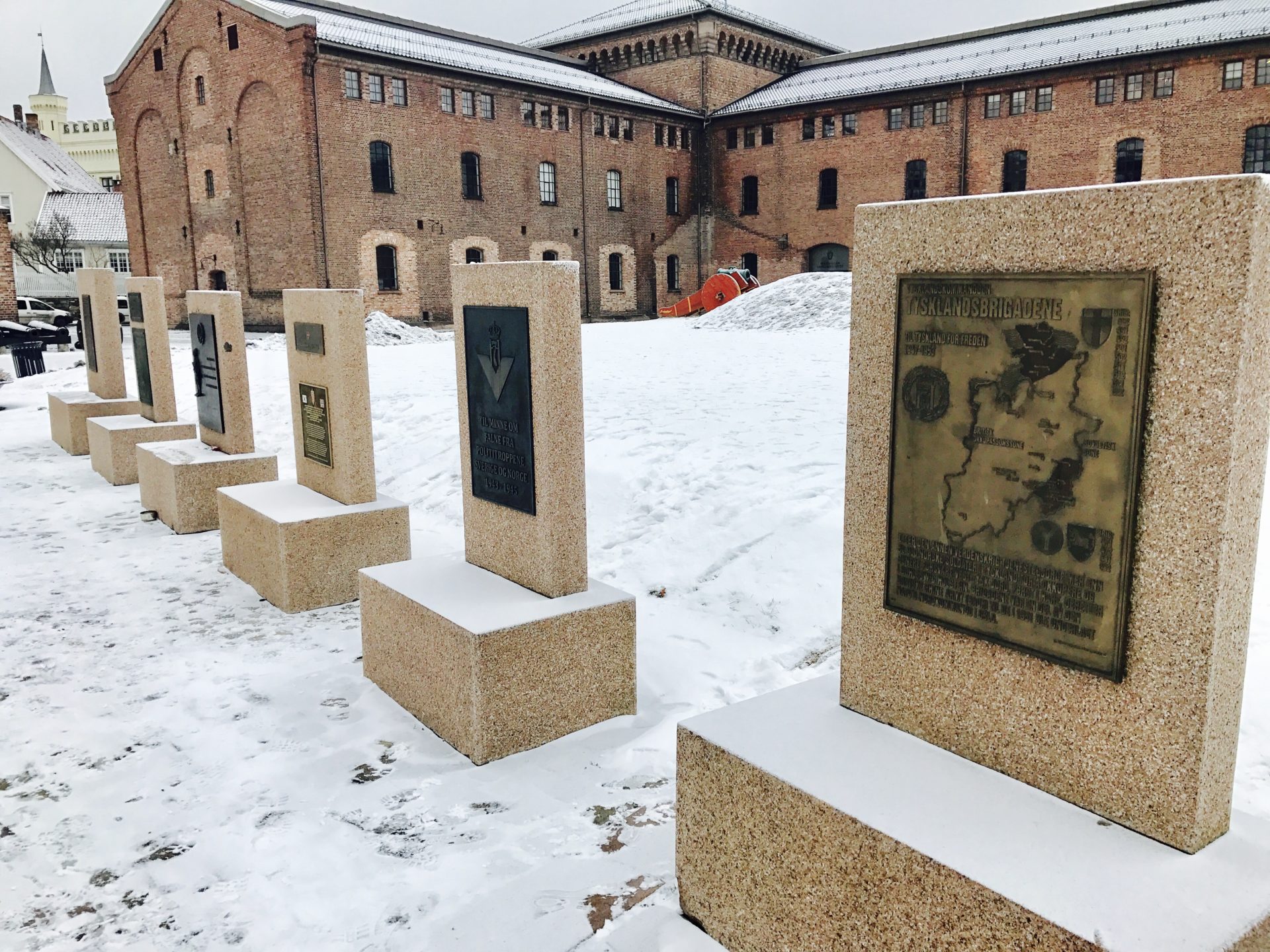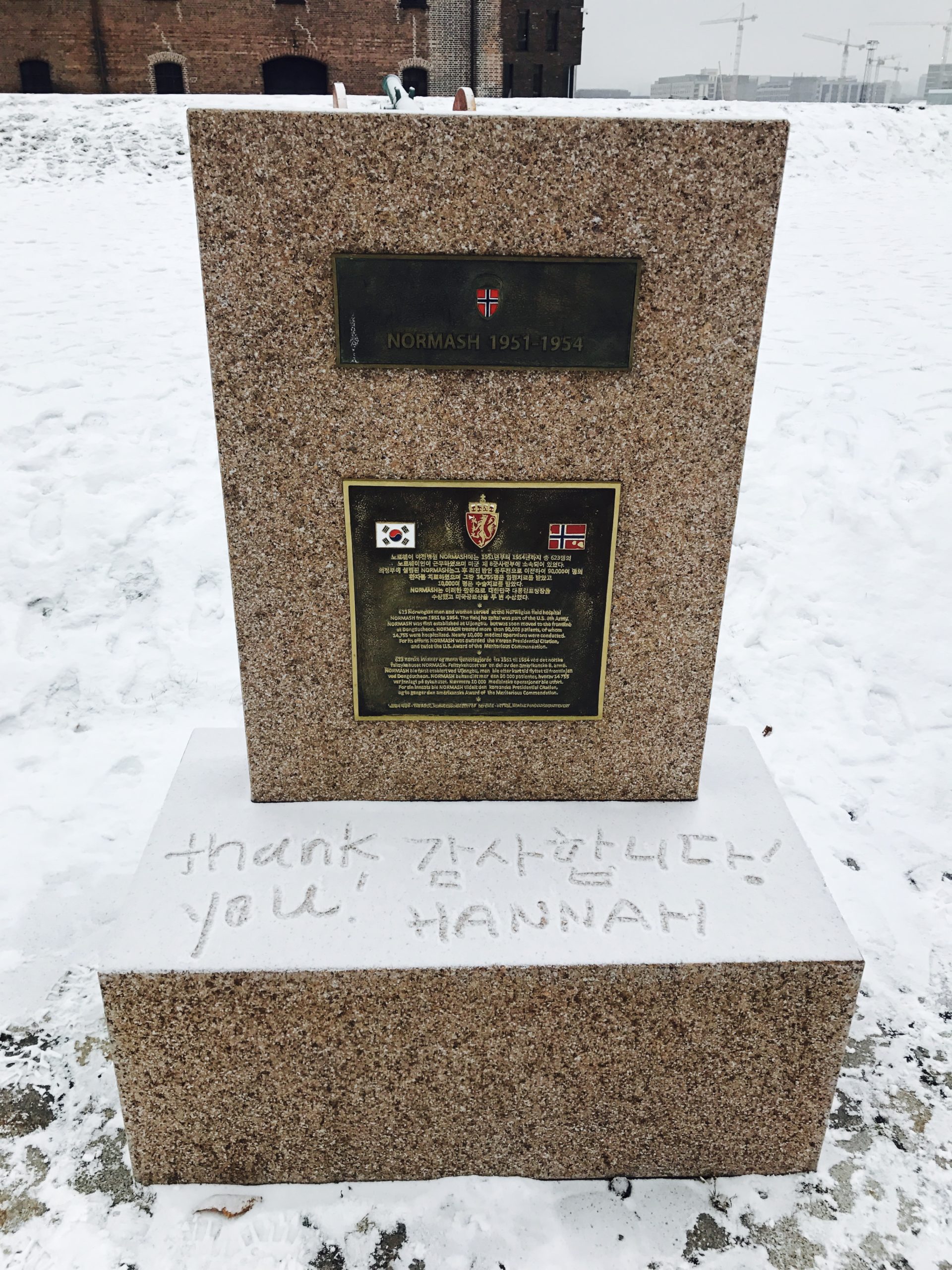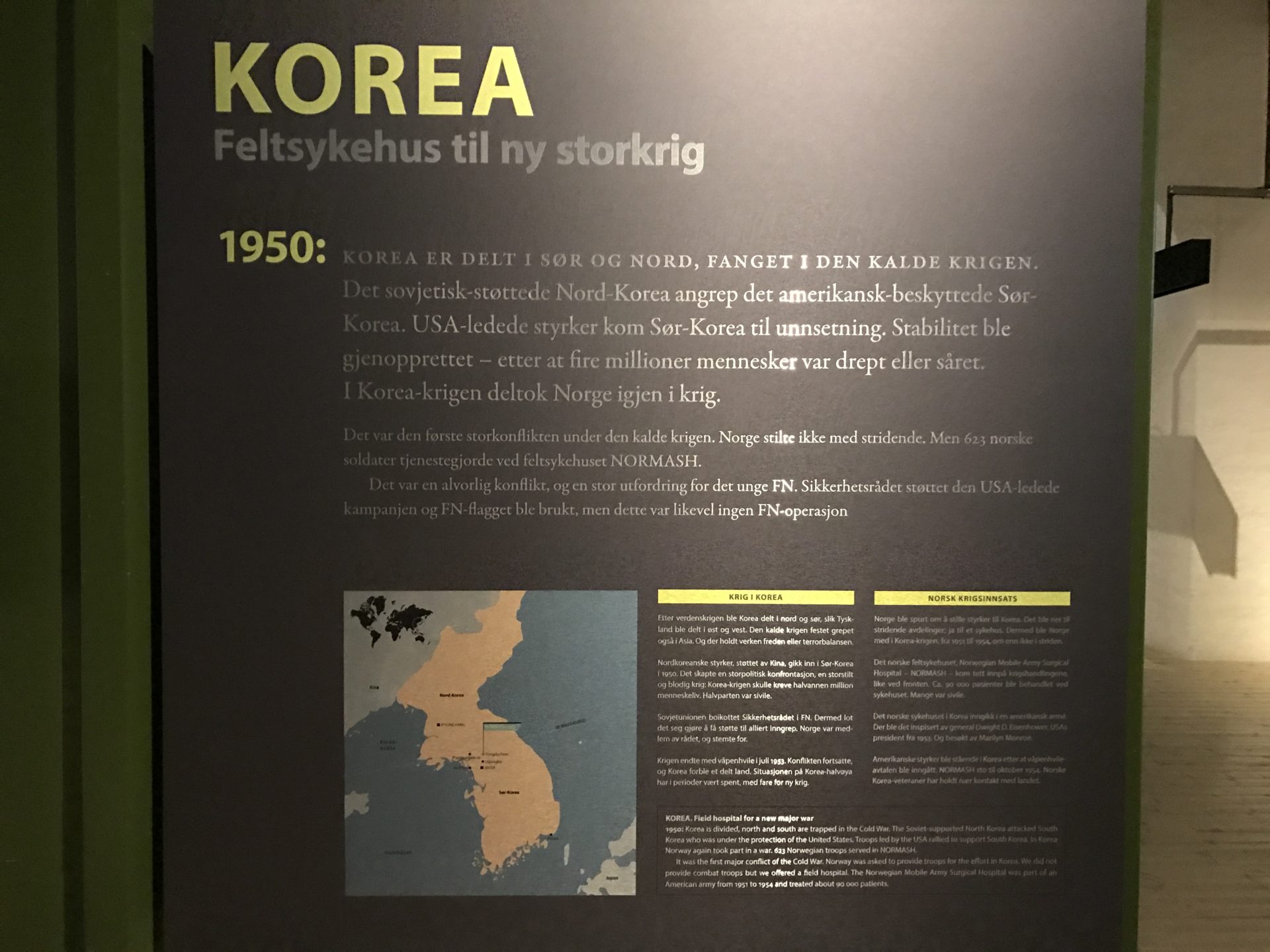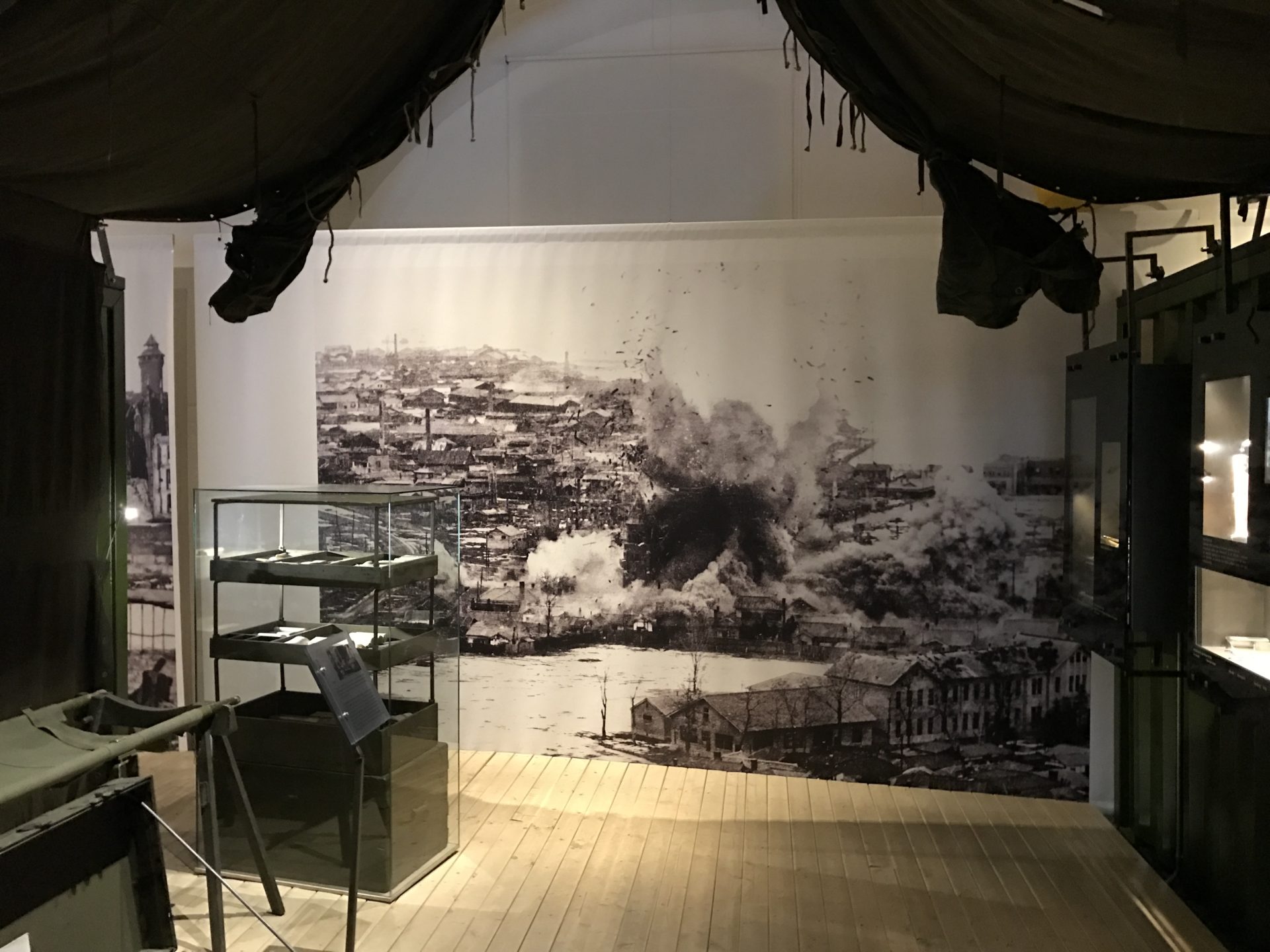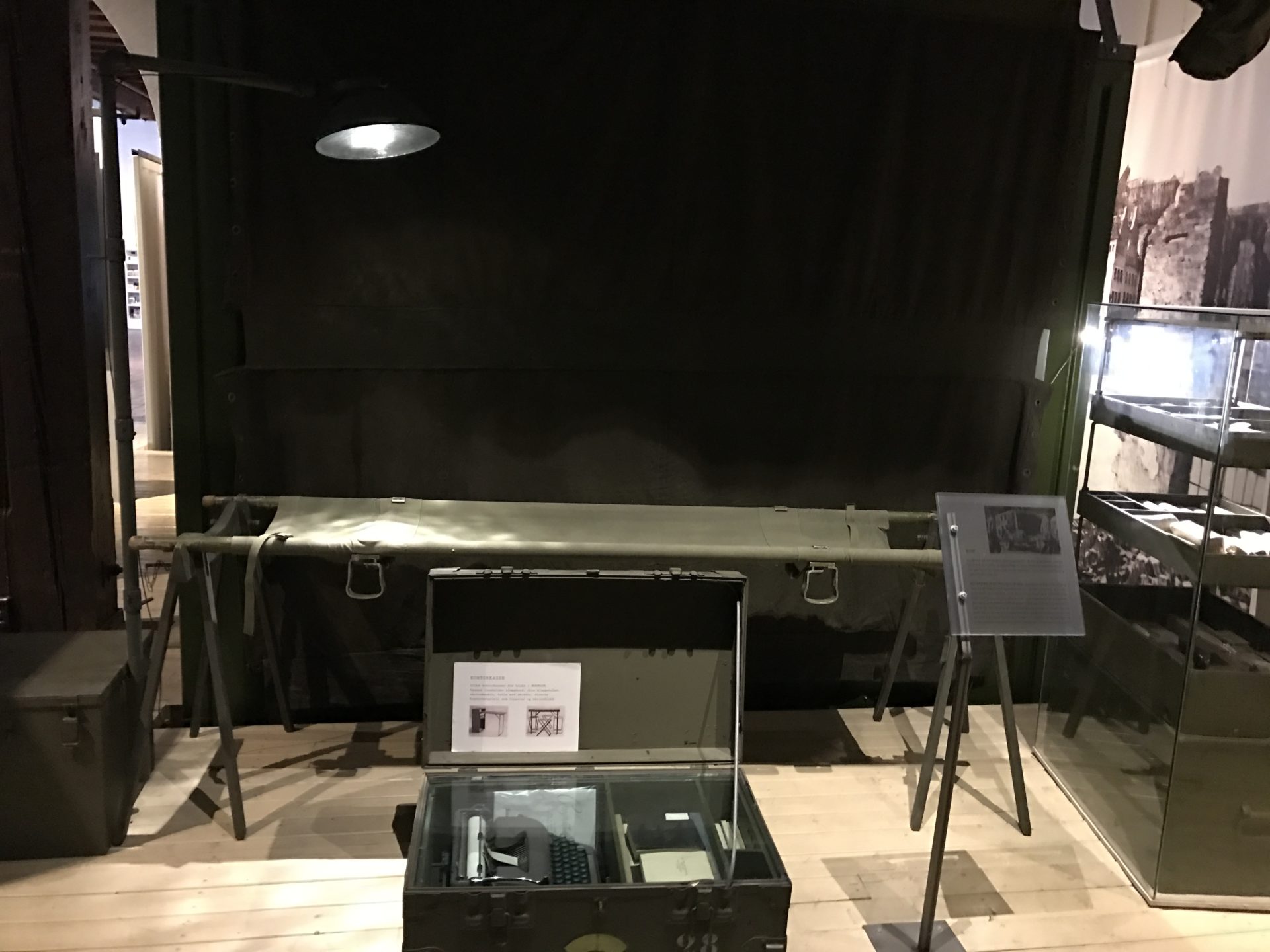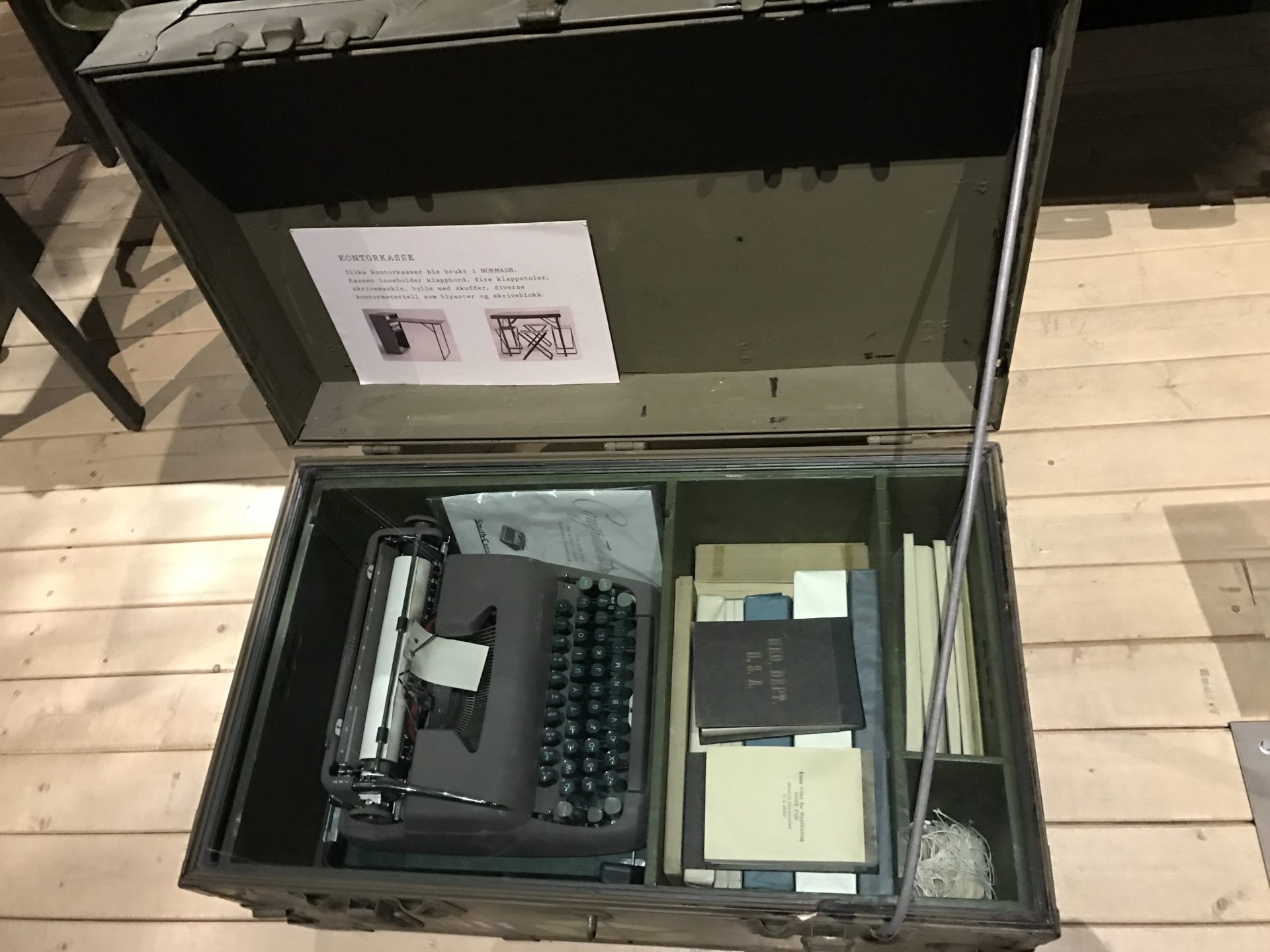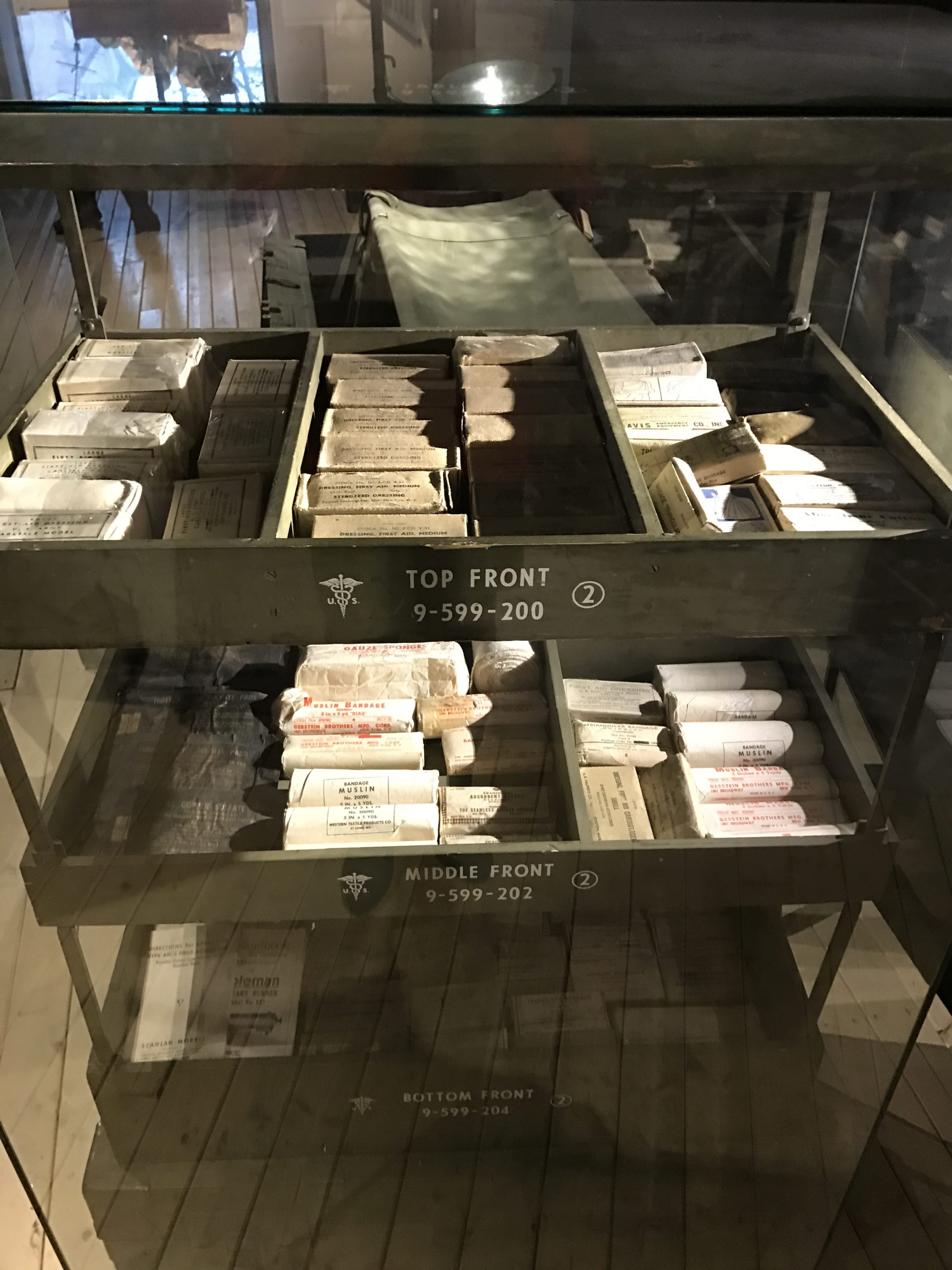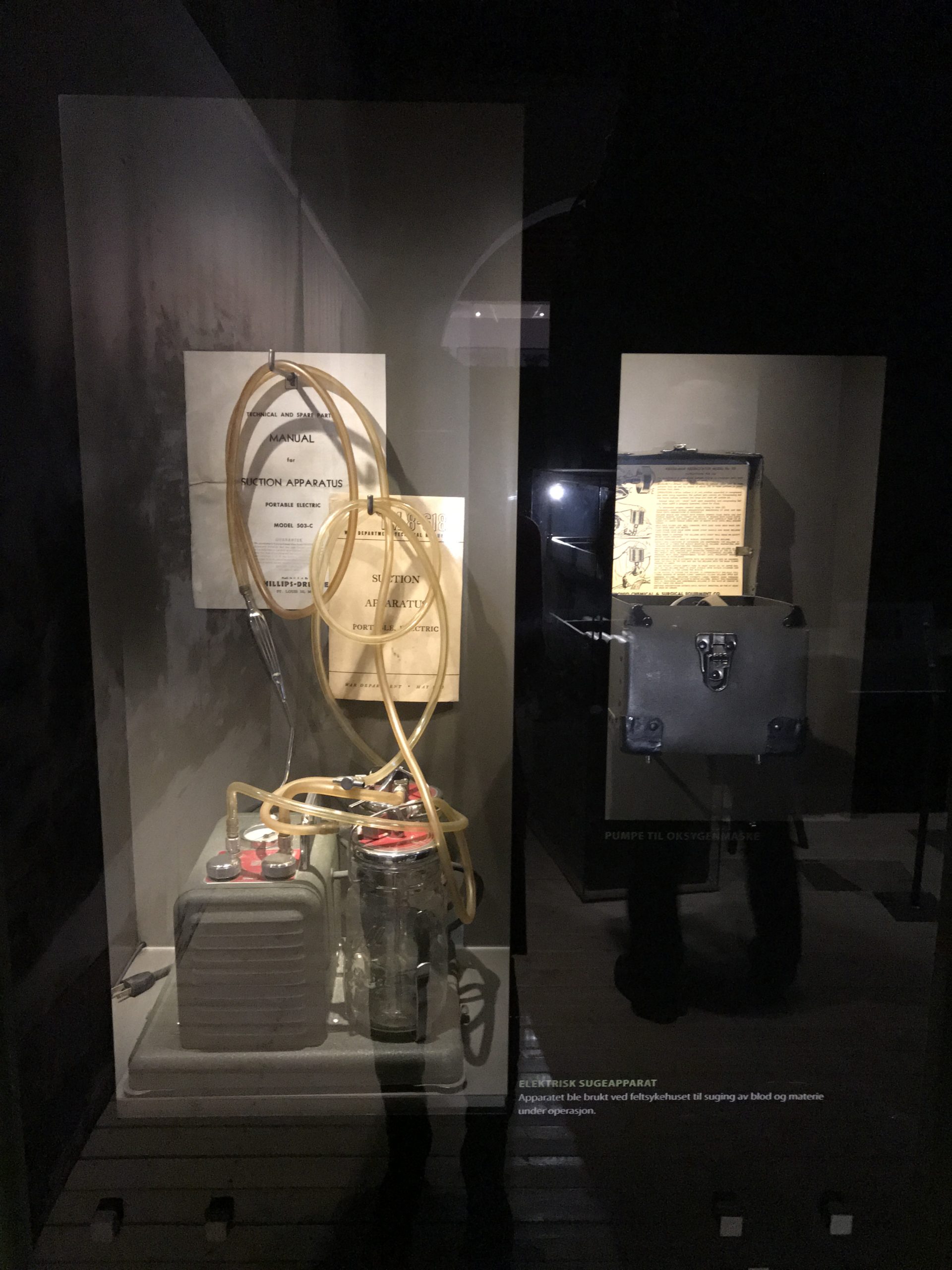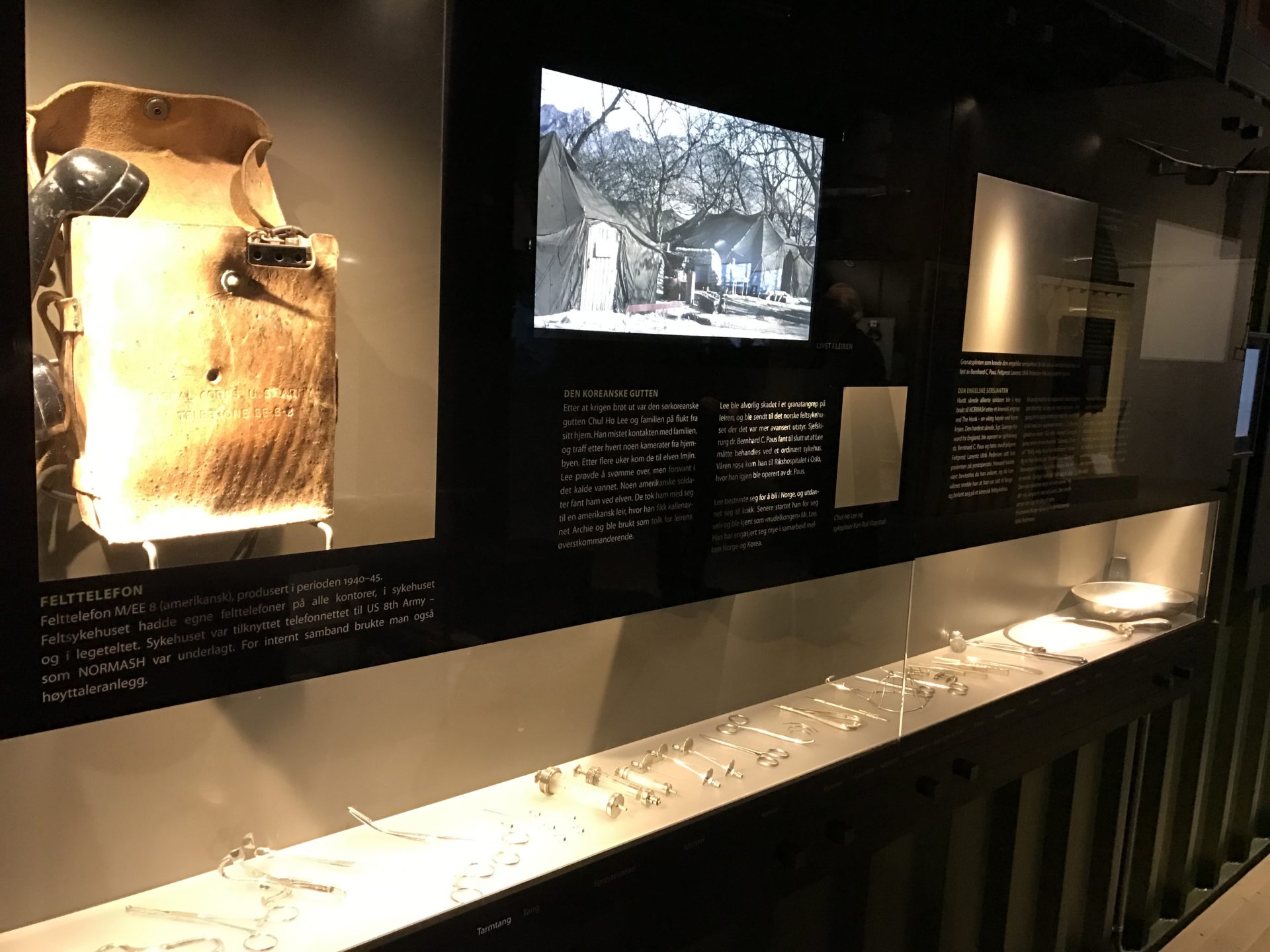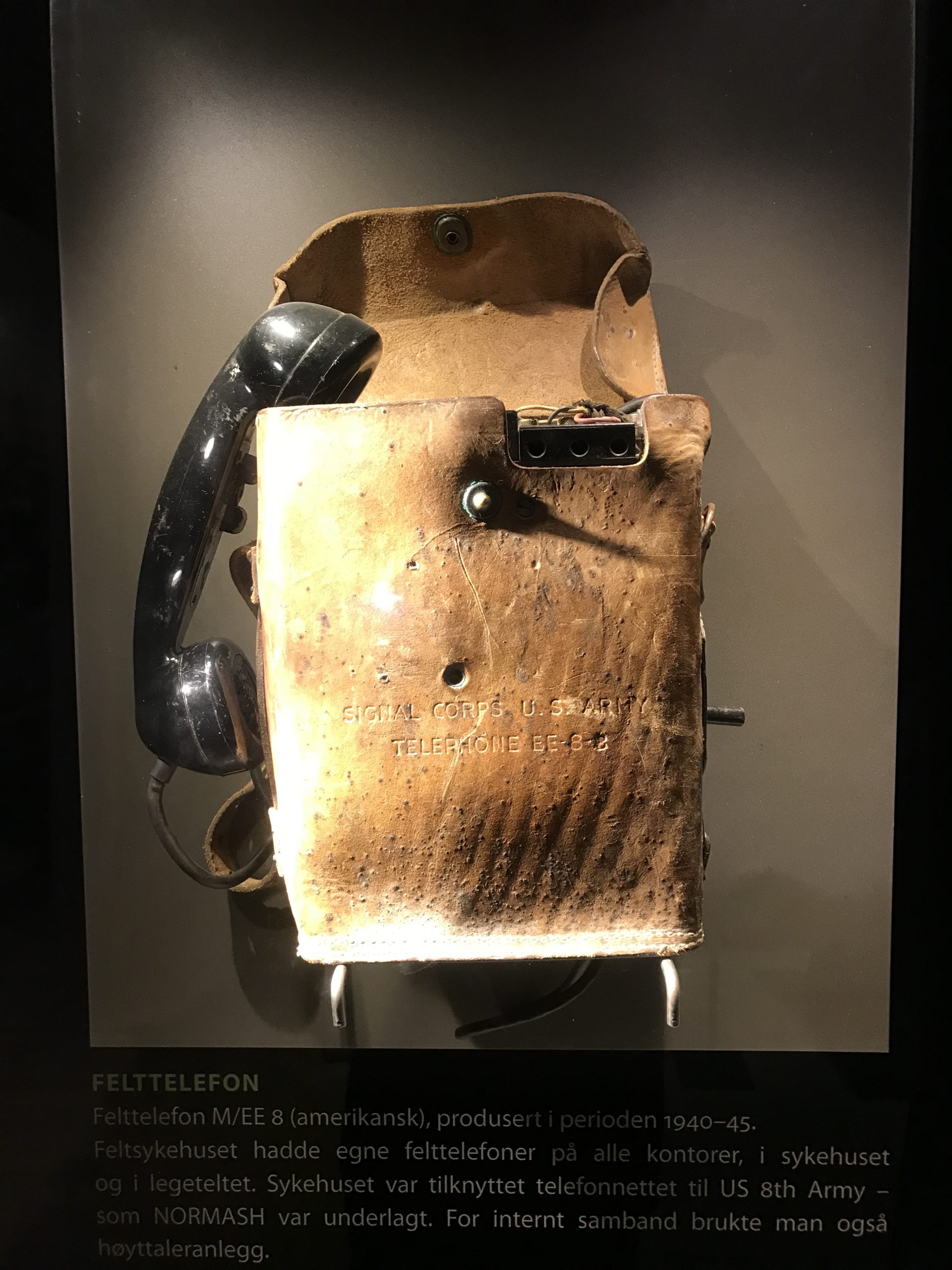Veteran Stories
>> My name is Adrid Fieren. I am a man of 85 years old. I served in the Korean War with NORMASH in '52, '53. NORMASH was Norwegian contribution among the nations that helped South Korea to defeat the North Korean War from North Koreans. NORMASH is a mobile army surgical hospital. The main purpose for NORMASH is to take care of soldiers directly from the front line, wounded which has to be X-rayed and to be operated by surgeons. NORMASH therefore was placed approximately 10, 12 kilometers from the [INAUDIBLE] front line. We were a part of 8th Army and had, as far as I remember, three divisions to serve soldiers from. Soldiers coming into NORMASH was treated there and had to leave before the 3 days. Then the patients had to [INAUDIBLE] other hospitals. NORMASH was served by, I think, approximately 600 people from Norway. Each continent each period of 6 months, and then 106 persons on each period. I was in the guard, controlling all together with then all the Norwegians, and our duty was to guard camp to serve the borders. What do you call it [INAUDIBLE]?
>> Barbed wire.
>> Hmm?
>> Barbed wire.
>> Barbed.
>> Wire.
>> Wire but [INAUDIBLE] to be in the main gate all 24 hours. Together with [INAUDIBLE] Korean soldiers, a soldier from ROK Army. AMASH, the main thing in AMASH is of course the hospital itself, but it has many service functions around [INAUDIBLE] transport service in the camp, guarding and so on, and we had, I think it was approximately 30, 40 ROK Army Koreans [INAUDIBLE] guarding people. I think there were approximately 15, 20 and [INAUDIBLE] to maintain the camp itself. Then the nights especially in the guard, we were two then, one Korean and one Norwegian. We had difficulties, of course, with language, but we tried to communicate a little. But one thing we learned each other, that was a song. The Korean has a folk song called [FOREIGN LANGUAGE] and the Korean colleague on guard, the Korean learned us [FOREIGN LANGUAGE] and we learned him [FOREIGN LANGUAGE] a Norwegian folk song, and the [FOREIGN LANGUAGE] we learned goes like this. [Lyrics] [FOREIGN LANGUAGE]. A little like that, we learned, and perhaps in Korea, an old man of 80, perhaps he's singing [FOREIGN LANGUAGE] maybe. Why did I go to Korea? Well, I was already 20 years old. I had finished first military service in regularly in Norway, and we were all volunteers, and on that time, I nearly didn't know where Korea was, but I had to look up on a map and find the little country called Korea, but it was the adventures, one thing, to travel all around and half around the world. I'd never been in plane before. I'd never slept in a hotel before. It was new adventures waiting, maybe a little to take part in a battle against communism, but I wouldn't say that was the main thing for a young man on that. However, it turned to be a very fine trip. Six months after the War, Korea is one of ... We used to say that no other country in the world is so clever to say, "thank you," [FOREIGN LANGUAGE] as ... You know [FOREIGN LANGUAGE]? Norwegian ... as the Korean. I am so happy that I have been four times back on revisit trips.
>> Show us that picture where you went to Korea and that story of the nurse and the patient.
>> Yes, that's a good story. You see here we have a book which we, the veterans in Norway, has made possible, and it is also translated to Korean, and here, I can show you one picture. No, it's not here. It's in the magazine from one of the revisit. This was celebrating the 60 years of peace.
>> Armistice.
>> Huh?
>> Armistice.
>> Armistice, yes. It's not peace yet. There we had a nurse who served in the very first continent in '51, and she was taking part in that trip and [INAUDIBLE]. You see this? That's a lady. Her name is Gerd Semb. She is now a lady of 95, I think. When we someplace on that trip, I think it was in Uijeongbu, we had a lunch there, and when finished her lunch, going out, there came a man, this man to Gerd and saying, "Ah, I must thank you. I was young man, and I had destroyed my face, and you treated me." After more than 60 years, it seems this happening. That was a very funny and a very good story.
>> You're on the cover of the magazine.
>> Yeah, this is the magazine for the Norwegian forces.
>> With Gerd.
>> Yeah [FOREIGN LANGUAGE] is the name of this.
>> Who are the other two ...
>> Here is also the lady there, yes.
>> And who is the other lady?
>> And if it is of interest, this is me, and this is the Minister of Defense in Norway at that time. She also followed this trip.
>> So what did you think about Korea?
>> Now or on that time? At that time, Korea was more or less a ruin. In the place where we were situated, the battles had gone four times through, so it was no houses, no buildings, all destroyed. The people who were there lived in houses built of soil and equipment they held after the battle. Especially fort making ceilings on their houses, they took boxes of beer and open it so it was more like this. If you took the bottom and the top of a box of beer, you will have a flat metal, and many of those was how they built the ceilings, top of the ...
>> Roof.
>> ... roof, yes. Nowadays, Korea, the first time I visited was in '84, I think. It was a new modern country. It was unbelievable for me to come back and see this wonder, and the Korean people, I love them. I really love them.
>> Number one.
>> Number one, they are number one.
>> That's number one.
>> And we have been so happy. We have this veteran association to have a very, very good connection with the Korean ambassador. He is number one. So I think me and all the other Korean veterans also are very fond of the Korean people.
>> Well, we thank you.
>> Thank you.
>> [FOREIGN LANGUAGE].
>> Enough.
>> My name is Fillmore Kent, and I am 85 years old, and I served in Korea from November '53 until November '54. That was the last two continents in NORMASH history. I volunteered, as everybody who served in Korea. The reason why the Norwegian, Trygve Lie, was the first general secretary of UN starting in 1946, and it was very much publicity around the Korean War in Norway at that time. So, of course, I wanted to help. Also, it was an exciting because you cannot imagine today how far away Korea and Norway was. The second reason, or the third reason, was that I needed money to start my study in Germany, and the salary was partly paid in Korea and partly in Norway so you can save. We all had 6-month contract. I renewed my contract after 6 months, and that's the reason why I spent 1 year in Korea. The reason why I was picked out was that I had some first aid courses in Red Cross, and I was already a laboratory man, so I first picked out to serve at the hospital laboratory. When I came down, the position was occupied, so they put me as assistant to the operation tent. It was quite a new experience for me, but I learned rather quickly, and you get used to it. It was after the armistice, but we still had very many military patients but gradually fewer army people and more Korean civilians. After the 6 months, we had the opportunity to travel down to the hospital in Busan, the Swedish hospital, permanent hospital, so we get to know very much some Swedes. We had also very good relations with the Koreans in the camp. We were close friends. I have a theory in that aspect, Korea is a rather small country dominated by China and Japan. Norway is also a small country, dominated for centuries by the Danes. Norway was just a farmer's country with no education. If you wanted to have education, you had to go to Copenhagen. Later, we were under the strong influence by the Swedes, so my theory is that Korea and Norway have more or less the same history, even though they are opposites of the world. In April '54, NORMASH also engaged six Korean nurses already educated to help out because of the many Korean civilians, and I got to know one of them, and she came to Norway in '57 for further education and to meet me. We married in '61. We are still married. We have three children and eight grandchildren. So for me, the Korean event influenced my whole life afterwards. My wife is really happy because it's very important for Koreans to have a family and some success, so she's quite satisfied in her life also.
>> I would love to see her picture. I would love to see her picture.
>> I not here.
>> Oh, wow. Fascinating. You went back to Korea, you said, for a visit, right?
>> Yes.
>> How many times?
>> Yes. I think after ... These are the 30 years after the armistice. Koreans started the revisit tours, and I have been in Korea twice, in '83, so after 30 years, and in 2010. It was very surprising to get to come there and see that the fort is still ready to shoot after 30 years of armistice.
>> Even now?
>> Even now. But I mentioned the Busan hospital Swedes. As I told you, we got along, Swedes, very good, and they were both countries who had commission in Tongduchon to secure the armistice, and they still are there, I suppose, so we could visit them very early in 1954. I'm also a board member of the Korean War Veterans Association in Norway, and we have two events yearly here at the memorial statue. In June, the military attache located in Stockholm comes to pay tribute to our dead, and in the second Friday of November, we have our annual meeting.
>> Don't touch that. With your hands, don't ...
>> Oh. Oh. Okay. Sorry.
>> Okay. Say that again about your Association reunions.
>> Huh?
>> About your reunions. Say it again. You have two ...
>> Yeah. Okay. I'll start from the ... Yeah. Okay. Mm-hmm.
>> [INAUDIBLE]
>> Now, the Korean Veterans Association have two occasions to remember the dead ones here at Akershus Castle. The first one is in June. The military attache for Sweden and Norway located in Stockholm, he comes to pay tribute. And also the second Friday in November, we have our annual meeting where we also have a ceremony at the statue, and our president [INAUDIBLE], he is a former officer in the king's guard, and he takes care of the ceremony with flags, with armed guards and military band. So it's a rather great experience for us.
>> Do a lot of people come?
>> Yes, because in our association, we also have members who served at the Scandinavian hospital in Seoul, which was created in '56 or something, so they who served there also are members of our association.
>> Do Korean Norwegians come, too?
>> Yes, of course, the embassy and the embassy staff and some Koreans, too.
>> How about young people?
>> Not so many young people, but my experience is that young people in Korea, they know very much about the Korean War.
>> More than other countries.
>> Yeah.
>> Well, what do you think, because the Korean War is called, "The Forgotten War"? The Korean War, they say, is "The Forgotten War."
>> Mm-hmm. Not for me.
>> Hm. You're right. So I'm hoping to preserve this history for young people, younger generations. I'm very glad that Julie is here because she is young Norwegian, and I want more young Norwegians to be proud of your service.
>> I can also mention that from 2010, Korea also invited grandchildren of veterans. So in the first tour, we had 12 participants from Norway [INAUDIBLE] from Norway, and they had 1 week in Seoul and Busan and 1 week marching along the line, so it was a really good experience for them.
>> Did your grandchildren go?
>> Yes. I had one grandchildren. Actually, I had two grandchildren now, and when I revisited Korea in 2010, I brought also another grandchildren with me, and [INAUDIBLE] grandchildren and also Lucy [INAUDIBLE] on Saturday if she had the grandchildren.
>> What did they think?
>> They were very happy, and of course, it was a great experience for the grandchildren, too.
>> I'm sure they were very proud of you. I think so, right? Because they see Korea now, right? What do you think of Korea now?
>> Now, as I already said, the frontline passed four times through Seoul, so it was nothing left when we arrived, so it's amazing how the Koreans can manage. They are very clever and very grateful, work very hard.
>> Yeah. We do work hard, and we're very grateful people.
>> Yeah.
>> We are very, very thankful.
>> Yeah. Mm-hmm.
>> We don't forget.
>> No, and of course, if you look to North Korea, you understand why you are grateful.
>> Yes. I say that I am very, very fortunate and blessed that I was not born in North Korea, you know?
>> Yeah.
>> So I hope that, you know, you went, and you defended South Korea's freedom, right? I hope that the war will end soon and Korea would finally have peace and reunification so that North Koreans can also enjoy freedom. Do you think that's possible?
>> Doesn't look that way. And, of course, Germany was divided in the same way, and it ended, but you can still see a difference between West Germany and East Germany, even in Berlin. So it's not easy to combine West Germany and East Germany, still some problems, and I suppose in Korea, it must be even more problems. But of course, I will wish you good luck.
>> Yeah. I hope so, too. Anything you would like to say to maybe young people all around the world about war, peace, about your experience in Korea?
>> No. I don't think so.
>> No? Well, thank you so much for your time.
>> Okay. Okay.
>> You have from there, the German, Norwegian soldiers in Germany after war.
>> Okay.
>> And we have those from Sweden, if you see, to Sweden, the Korean, Norwegian Korean there in the middle.
>> Okay.
>> [INAUDIBLE].
>> Do you read Korean?
>> Yes.
>> Yes.
>> NORMASH, 1951 to 1954, wow, 623 Norwegian ... More than 90 patients.
>> Ninety thousand, 90,000.
>> Ninety thousand, I mean, 90,000. Were any Norwegian servicemen or women killed?
>> Three of them.
>> Not in battle, not in battle.
>> Three?
>> But not in battle but in service.
>> Accidents.
>> Accidents?
>> Yeah.
>> What kind of accidents?
>> Driving accidents.
>> Driving ...
>> In Korea?
>> Yeah, yeah, during the service, yeah.
>> Oh, no.
>> And the third one is a Norwegian sailor.
>> Sailor, yes.
>> Because when the Korean War started, a lot of Norwegian ships were in the area, so they worked with evacuation of civilians from the war zone and also the transportation of heavy military material from the fan to Korea and back to Japan for repair also.
>> So ...
>> But it's not so well-known.
>> I only thought ...
>> We have written about it in our book.
>> I only thought doctors and nurses went from Norway.
>> Oh, no, personnel too. To run a MASH, you need more than doctors.
>> One hundred persons in total.
>> One hundred and six.
>> Sixty of them working in the hospital.
>> Each continent, 106 persons.
>> And the very necessary addition ...
>> Cooks, cooks, guards.
>> Drivers.
>> Drivers.
>> Technical personnel.
>> Technical and camp workers.
>> But ...
>> And in addition, 60 Korean too.
>> Yes.
>> Really? So ...
>> About 25 Korean guards?
>> Yeah, approximately.
>> Approximately.
>> And four were working in the camp.
>> And civilians too.
>> So 100 medical personnel?
>> Yeah, yeah, and the MASH consists of 100 persons, Norwegian persons.
>> And 523 other servicemen from Norway because there were 623 total.
>> Yes, in total.
>> No.
>> All Norwegian were volunteers.
>> Each continent ...
>> Yeah, continent, yeah.
>> ... for 1/2 a year, and we had six continents.
>> Seven, seven.
>> Seven at all, and they changed every 6 months, and each continent had 106 persons, personnel, and of those, approximately 40 medicals.
>> No, 60 medicals.
>> So many?
>> Yeah [INAUDIBLE].
>> [INAUDIBLE].
>> It doesn't matter, doesn't matter.
>> And of course, the medicals, the hospital is the main thing of a MASH, of course. MASH stands for Mobile Army Surgical Hospital, MASH.
>> There's a very famous TV series in America.
>> We have seen that.
>> Comics.
>> What do you think of that?
>> The scenery is very natural. I don't know where it's taken, but it looks like Korean scenery.
>> Yeah.
>> And the tents and everything is very, very close to ...
>> Real?
>> ... real, yeah.
>> And you see here, NOR, that stands for Norway, MASH.
>> And if you behaved well, you could have a new contract for 6 months. I behaved very well, so I stayed for 1 year.
>> One year, but why ...
>> He didn't behave so well, and so he stayed for another 6 months.
>> You all volunteered.
>> Yes, we all were.
>> Everybody was volunteer.
>> Wasn't it difficult? Why did you want to stay longer? Wasn't it difficult?
>> To stay longer? No, no, I had service after the war or armistice.
>> Approximately 100 stayed more than ...
>> Yeah.
>> ... 1 year.
>> Yeah.
>> Six months, 1 year at all. It was a good pay, you see, after Norwegian conditions, and so it was ...
>> To be honest, I had three reasons for going to Korea. First of all, Norwegian Trygve Lie was the first general secretary of United Nations. He was well-known internationally because Norway had a foreign administration in London during the war, and so it was very much first about Korea and the Korean War. Of course, I wanted to help. Secondly, it was very exciting, so exotic.
>> Yeah.
>> You cannot imagine today how far it was from Norway to Korea and how different the societies were, so it was excitement, and thirdly, I needed money for my study, and we were not so very good paid, but most of the money was in Norway.
>> Yeah, yeah, yes.
>> And we had a small salary.
>> Scrips.
>> Yeah, scrips.
>> Money valued only during war, Korea.
>> Yeah, and the scrips started all in first World War, I read once.
>> Yeah, special money.
>> Yeah.
